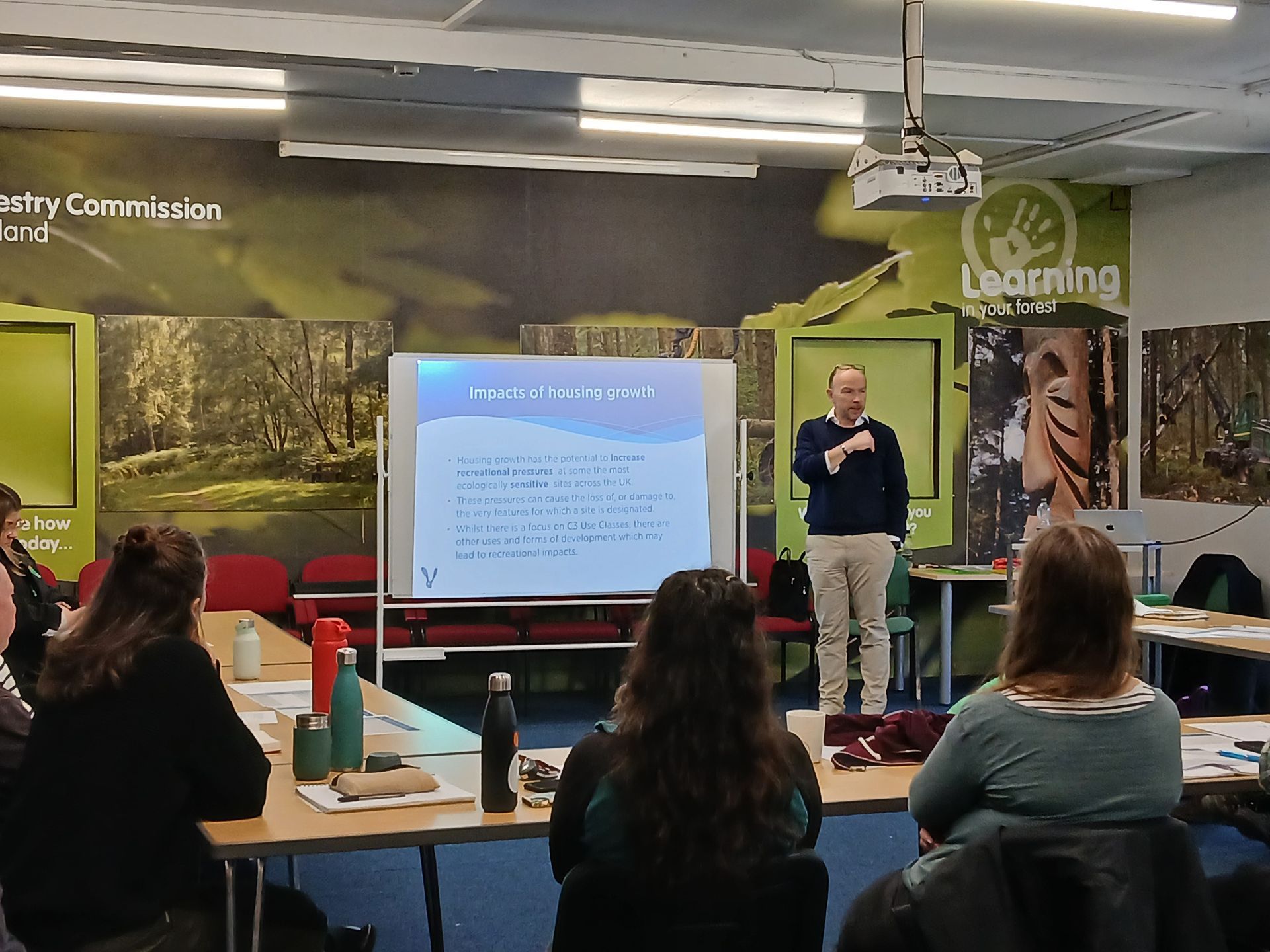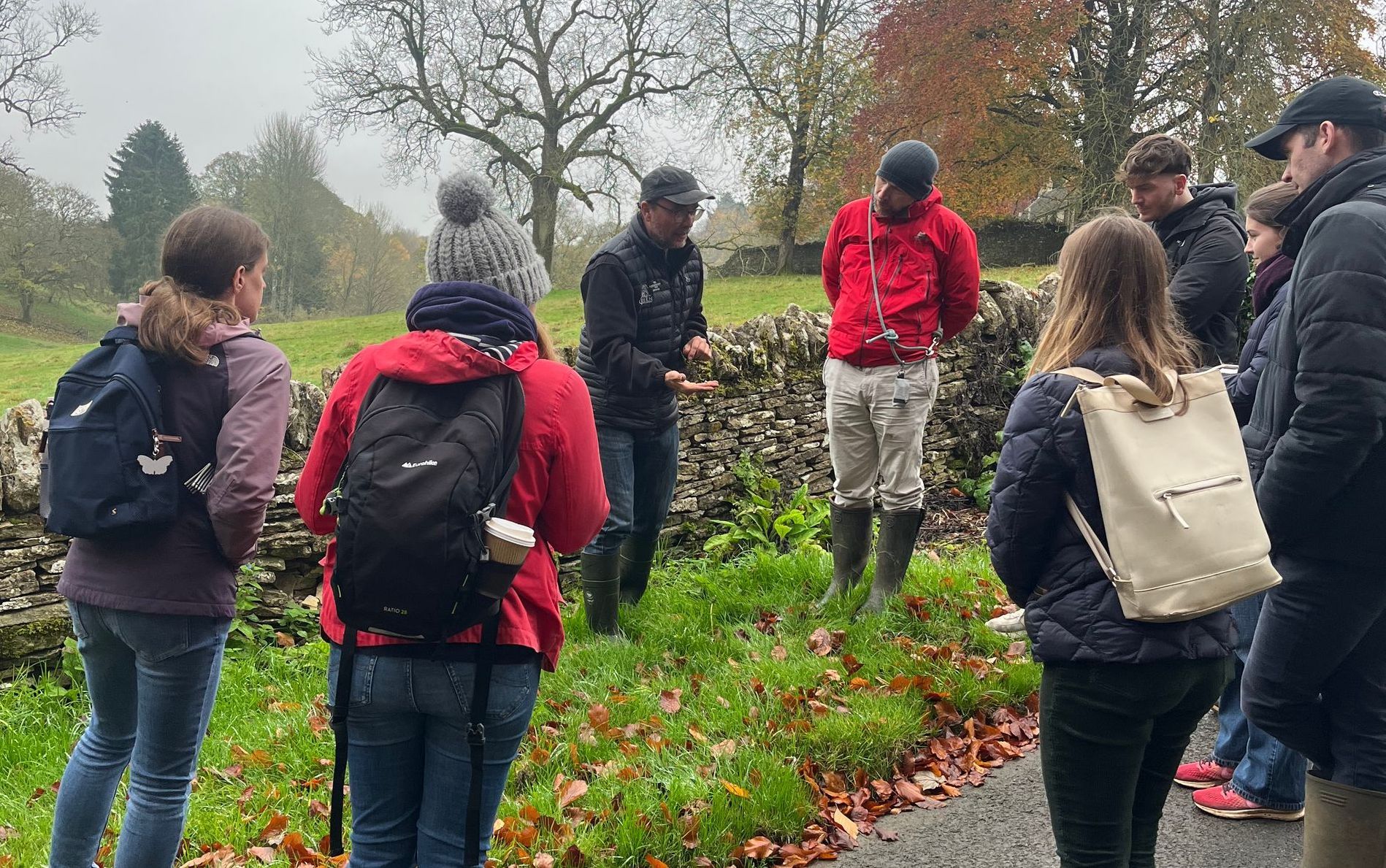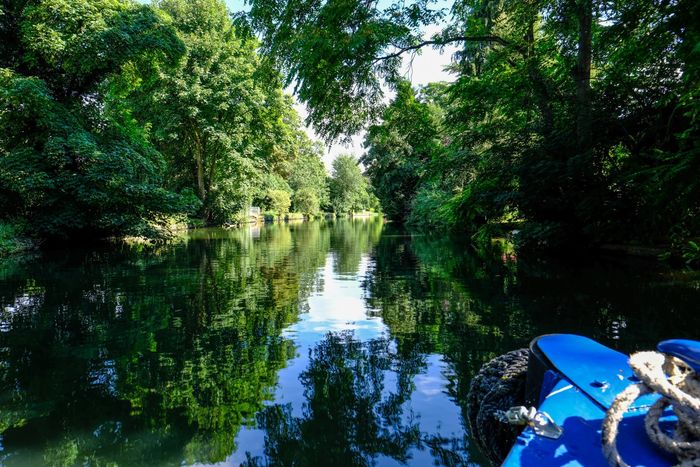Lepus believes in planning at the landscape scale to deliver sustainable development.
OUR SERVICES
Lepus is a landscape ecology, environmental planning and sustainability appraisal practice based in Cheltenham, Gloucestershire.

Lepus Consulting is an established specialist environmental assessment practice. Our skilled team of professional environmental planners, ecologists and landscape architects work proactively with our clients to develop high quality assessments, advice and guidance. We work on a wide range of projects from both the public and private sector.
Sustainable development sits at the heart of our business. We develop strong working relationships with our clients in order to integrate these principles into all aspects of our work.
Our service provision focuses on landscape ecology, planning and urban sustainability. Specific products include sustainability appraisal, strategic environmental assessment, green infrastructure planning, landscape assessment, habitats regulations assessment, landscape ecology and expert witness.
OUR PROJECTS
Lepus works across the UK with a range of different clients. See below for a selection of recent projects.
LATEST NEWS
Our news page will provide you with a flavour of the views, news and other relevant information about current thinking on environmental planning and sustainable place making. Take a look below, or see our news page.

Under existing laws, such as the Habitats Regulations (the Conservation of Habitats and Species Regulations 2017) and the Wildlife and Countryside Act 1981, developers are required to undertake project specific assessments and mitigation strategies to assess and diminish their potential impacts on the natural environment. The Government suggests these processes can delay development until sufficient mitigation becomes available, creating barriers to building crucial homes and infrastructure. Part III of the Planning and Infrastructure Bill will offer an alternative approach for developers by establishing the Nature Restoration Fund (NRF) and associated Environmental Delivery Plans (EDPs). Rather than implementing site-specific mitigation measures, the Bill will enable developers to pay into the central NRF via a one-off levy, funding large-scale conservation projects managed by Natural England or other designated delivery bodies. EDPs are created and managed by Natural England to outline the conservation measures that should be taken to address developments impact on a protected site or species. Before being implemented, the EDPs will undergo an ‘overall improvement test’ to assess whether the strategic approach is sufficient to outweigh the negative effects of developments. The Government claims this process will enable Natural England and partners to quickly deliver nature restoration at a large scale whilst expediting development, however, the Bill has been heavily criticised by industry professionals, political figures, and environmental organisations such as The Wildlife Trusts and The Chartered Institute of Ecology and Environmental Management. A group of 40 leading conservationists, former Government advisors, and leading economists have written to every MP in England asking them to write to the Ministry of Housing, Communities and Local Government to request that Part III of the bill is paused. The letter states that the Bill is not a tool for nature recovery, enabling developers to ‘buy out’ their legal obligations to nature, which in turn, threatens crucial protections and risks irreversible damage to ecosystems. The letter states that “the Government’s rhetoric — that wildlife laws are delaying house building — is simply false”, going on to argue that developmental delays are mostly caused by under resourced planning authorities, infrastructure bottlenecks, and industry-led viability constraints. The authors argue that strategic licensing systems (such as the popular District Level Licensing for newts) are legally robust, evidence based, effectively protect species, and streamline development. Part III of the Bill has been criticised for the following reasons: · Whilst being reliant on the NRF levy to fund its own administration, Natural England will both write the conservation plans and assess their efficacy, with no independent examination, which is a clear conflict of interest. Moreover, the entire success of the Bill relies on Natural England’s ability to develop, deliver, and police effective EDPs, which presents a significant challenge for the organisation. · The overall improvement test is vague and legally weak, leaving it open to manipulation and allowing environmental protections to be easily dismissed. Furthermore, the Secretary of State for Housing will have the discretion of determining whether the test is met, creating a loophole where political decision making can be prioritised over strategic actions backed by ecological and scientific reasoning. · The Bill ignores fundamental principles of effective ecological governance: a. The Polluter Pays Principal, which dictates that the costs of environmental damage should be borne by those causing it. This is instead replaced by a simple levy across all developments. b. The Mitigation Hierarchy, which employs developers to first avoid causing harm, before minimising, then restoring, and as a last resort, offsetting environmental degradation. The NRF ignores this process, allowing developers to simply pay into the levy to offset damages. c. The Precautionary Principal, which dictates that a lack of scientific certainty should not be used as a reason for postponing measures to prevent environmental degradation. · Rather than being set to cover the real cost of ecological damage, the levies are viability based, being adjusted downwards according to development viability. This means that when economic pressures arise, nature will be set to lose out. Lepus view The government’s determination to ‘deliver the undeliverable’ (1.5 million homes in five years) is leading them into controversy as they seek to turbocharge the development process, seemingly at the cost of protecting, enhancing and restoring ecological integrity. Biodiversity levels are already woefully low in the UK, compared with other countries. It is apparent that the PIB is in sharp contrast to other government policy which seeks to deliver net zero, appreciate the climate change crisis and biodiversity crisis. Lepus believes the proposed approach lacks transparency and is dangerously close to unleashing a level of unplanned development growth that has not been seen since the agricultural revolution and post-war development levels that were necessary to re-build the country. Whilst at the forefront of the LURA 2023, the government has committed ensuring any reform to biodiversity management and protection will not be compromised in the face of other legislative reform, the PIB appears to run the risk of doing exactly the opposite. There is much, much more thought and consideration required before the government introduces an Act that could lead to the loss of crucial safeguards that have, and continue to, protect nature in the United Kingdom. Not to forget that the NRF approach will put increasing strain on the already under-funded Natural England. It is healthy to review and check if systems are fit for purpose. This must take place first rather than to adopt a slash and burn approach which leaves no room for reversal. The government would be wise to pause Part III of PIB whilst they can better answer some of these performance questions.

RECREATIONAL DISTURBANCE TRAINING FOR NATURAL ENGLAND Natural England provides advice to applicants and statutory decision makers on the potential impacts of development proposals on the natural environment. A key part of their statutory remit concerns impacts to national and international designated sites such as Sites of Special Scientific Interest (SSSIs), Special Areas of Conservation (SACs), Special Protection Areas (SPAs) and Ramsars which are often impacted by recreational activities causing recreational disturbance. Recreational disturbance refers to someone taking part in a recreational activity that causes a change in behaviour of wildlife, damage to habitat or physical harm or death of wildlife. In this capacity, the Natural England East Midlands Area Team sought bespoke training on recreational disturbance in order to aid their casework handling. Lepus has worked closely with the team to deliver a comprehensive training plan which included a morning session of classroom-based learning, followed by a site walkover and Q&A session. All attendees took part in a site visit to Sherwood Forest (SSSI and SAC) which allowed for the practical application of key learnings with commentary covering topics discussed in the classroom-based session. Supplementary training materials were provided to aid with the continued application of key learnings, allowing the team to quickly identify potential disturbance impacts from different types of development and suggest ways of mitigating impacts where applicable. Lepus is available to deliver training in recreational disturbance for your organisation and can deliver a package which is tailored to your organisations specific needs, or locality. Please contact enquiries@lepusconsulting.com to discuss

TEAM AWAY DAY: FORAGING AND BOTANY IN NOTGROVE In our ongoing mission to foster environmental education and sustainable practices, our environmental consultancy team recently participated in a foraging course held in the picturesque Cotswold village of Notgrove. The Notgrove Estate offered the perfect backdrop for this hands-on learning experience. With its diverse ecosystems, the area is rich in flora and fungi, making it an ideal location for understanding the abundance of edible plants and mushrooms that can be foraged throughout the year. The course was hosted by Wild Food UK who run courses across the country, at varying times of year with the aim of encouraging peoples connection to nature. Our day began with a warm welcome and an informative introduction to Wild Food UK and the foraging experience that lay ahead. We were briefed on the countryside codes, with particular emphasis on the Foraging Code, which highlights the ethical and responsible practices necessary for sustainable foraging. The group then set off on a walk around the Notgrove Estate’s expansive grounds. Led by an expert foraging instructor, we were taught how to identify a variety of edible plants and mushrooms. Each plant we identified had its own history of being used in cooking, medicine, and folklore and it was fascinating to learn. The day concluded with a wild food meal that included a selection of foraged dishes prepared by our instructor, each showcasing the plants and fungi we had gathered during our walk. In addition to the hands-on experience, each participant was sent a comprehensive set of course notes a few days after the course. This included links to articles and resources related to the plants and mushrooms we encountered during the day, providing us with an opportunity to continue our learning journey. For our consultancy team, the foraging course was an invaluable experience. It deepened our understanding of local ecosystems, and enhanced our awareness of the biodiversity that surrounds us, reinforcing the importance of sustainable practices in all aspects of environmental work. We left Notgrove with not only a greater appreciation for the natural world but also the tools to integrate foraging and sustainable food practices into our personal and professional lives.






